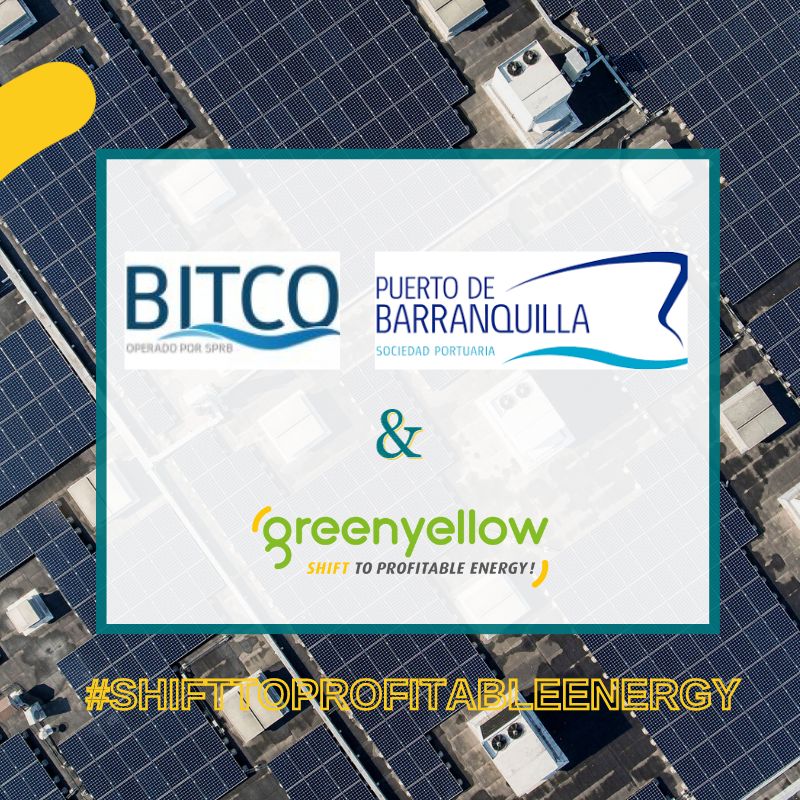Logistics
The logistics sector plays an essential role in the supply chain, ensuring the storage, handling, refrigeration and distribution of goods. However, its activities have a significant environmental impact due to their high energy consumption and greenhouse gas (GHG) emissions. This is why it is imperative to seek sustainable solutions and promote the energy transition to meet the major challenges facing this sector.
GreenYellow is the partner you can trust to meet the challenges of sustainable development. We specialize in working on occupied sites, and offer a comprehensive approach to the entire energy value chain for logistics sites. We analyze, design, finance, deploy and manage energy installations, while guaranteeing the savings achieved. Our mission is to support logistics companies in their energy transition, taking into account the multiple and crucial issues at stake, given their essential role in energy consumption and their environmental impact.
Improving energy efficiency
The logistics sector can be optimized to reduce energy consumption without compromising operational efficiency. Enhancing the energy efficiency of sites is at the heart of GreenYellow's business model, which supports logistics operators with its #SHIFTEfficiency and #SHIFTEnergyServices offers, covering all utilities (heating, cooling, lighting, HVAC, etc.). This enables the logistics sector to move towards a sustainable, energy-efficient model.
Reducing carbon emissions
The logistics sector is often powered by fossil fuels. The energy transition aims to reduce the sector's carbon emissions by adopting cleaner, renewable energy sources, such as solar power, as well as the use of electric vehicles for transporting and handling goods. GreenYellow offers concrete solutions to its clients logisticians. Thanks to its #SHIFTProduction solar production and #SHIFTMobility electric vehicle charging infrastructure (charging stations) solutions, the company is able to support players in the logistics sector in their energy transition. These offers come in the form of turnkey contracts, with no financial risk for clients, as they are entirely managed and financed by GreenYellow. In this way, GreenYellow enables logistics warehouses to switch to a cleaner energy source in a comprehensive, transparent and efficient way.
Energy demand management
The various components of the energy transition include energy demand management strategies. These include the regulation of consumption to avoid peaks in demand, and the use of energy storage batteries to reduce energy costs by optimizing the use of resources. The GreenYellow model is based on a proactive approach in this area. We are going even further by proposing a micro-grid model through our partnership with Schneider Electric. The aim of this partnership is to promote more efficient and sustainable energy management for logistics warehouses and other facilities.
Cost and investment management
Energy transition can also offer economic benefits in terms of reduced long-term energy costs. However, this often requires substantial initial investment. When you turn to GreenYellow, you benefit from turnkey contracts that carry no financial risk, since they are managed and financed 100% by GreenYellow. In this way, GreenYellow enables the logistics sector to accelerate their energy transition in a comprehensive, transparent and efficient way.
Stakeholder involvement
Energy transition can also offer economic benefits in terms of reduced long-term energy costs. However, this often requires substantial initial investment. When you turn to GreenYellow, you benefit from turnkey contracts that carry no financial risk, since they are managed and financed 100% by GreenYellow. In this way, GreenYellow enables the logistics sector to accelerate their energy transition in a comprehensive, transparent and efficient way.
Energy transition in the logistics sector requires collaboration between different stakeholders, including warehouse managers, owners, operators, energy solution providers, local communities and governments.
The energy transition offers the logistics sector opportunities to reduce the environmental impact of its facilities, while enhancing their operational efficiency and long-term competitiveness. This requires a strong commitment to sustainability, innovation in green technologies and collaboration between the various players involved. Companies that adopt sustainable and environmentally-friendly practices can attract more clients, business partners and investors sensitive to ESG (Environmental, Social and Governance) issues. In addition, they can enhance their reputation and brand image as a player committed to the energy transition. By calling on the expertise of GreenYellow, the logistics sector can tackle this transition effectively and successfully, and actively commit to a more sustainable future .

Let's analyze together
the ecological and financial impact
of your energy optimization.
Our experts will contact you to understand your needs and develop your turnkey project, 100% financed!
